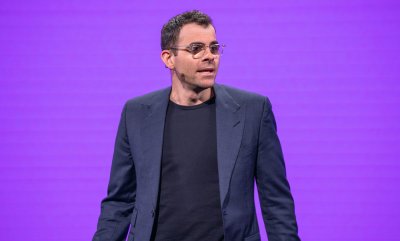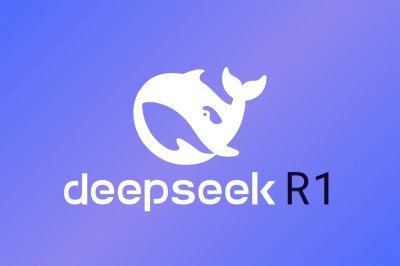Icarus Soars to $6.1M Series Seed Funding: Embodied AI Robots Tackle Space's "Warehouse Work"
@devadigax17 Sep 2025

Space exploration is on the cusp of a revolution, and it's not just about rockets and telescopes. A new wave of automation is poised to transform the logistical challenges of operating in the final frontier, and Icarus, a startup developing embodied AI robots, is leading the charge. The company recently announced securing $6.1 million in seed funding, a significant boost to its mission of tackling the often-overlooked "warehouse work" of space operations. This investment signifies a growing interest in automating tasks in space, potentially paving the way for more ambitious and sustainable space exploration endeavors.
The seed round was led by [Investor Name - This needs to be researched from the original TechCrunch article, if available. Otherwise, a placeholder can be used, e.g., "a prominent Silicon Valley venture capital firm"]. Participation also came from [Other Investors - Again, needs further research or placeholder]. This infusion of capital will allow Icarus to scale its operations, expand its team, and further develop its cutting-edge robotic technology designed for the harsh realities of the space environment.
Icarus's embodied AI robots are not your typical industrial automatons. They are designed to operate autonomously in complex, unpredictable environments, performing tasks ranging from assembling satellites and managing equipment to maintaining spacecraft and conducting scientific experiments. This contrasts sharply with the current methods often reliant on expensive, time-consuming, and risky human intervention. The company’s approach hinges on a sophisticated interplay of advanced robotics, artificial intelligence, and machine learning, enabling the robots to adapt to unforeseen circumstances and learn from their experiences.
The "warehouse work" analogy, while seemingly simple, aptly captures the scope of Icarus’s target market. Space missions, particularly those involving long-duration stays or construction in orbit or on other celestial bodies, generate a massive amount of logistical challenges. Managing supplies, repairing equipment, and conducting routine maintenance are essential but often mundane tasks that consume valuable astronaut time and resources. By automating these tasks, Icarus's robots promise to free up human personnel for more critical, scientific, and exploratory activities.
The advantages extend beyond simple efficiency. Embodied AI robots offer a significant safety improvement. Many tasks in space are inherently dangerous, exposing humans to extreme conditions and the risk of accidents. Robots can undertake these hazardous duties, minimizing human risk and increasing the safety profile of space operations. This becomes increasingly critical as space exploration expands to more challenging locations, such as the lunar surface or Mars.
The company's technology leverages several key AI advancements. Computer vision allows the robots to perceive and understand their surroundings, navigating complex environments with minimal human intervention. Machine learning algorithms enable the robots to continuously improve their performance through experience, adapting to changing conditions and performing tasks with increasing accuracy and efficiency. Advanced control systems ensure smooth and reliable operation, even in the face of unexpected challenges like equipment malfunctions or communication delays.
However, challenges remain. The space environment presents unique obstacles for robotic systems, including extreme temperatures, radiation, and the vacuum of space. Developing robots capable of withstanding these conditions while maintaining operational functionality requires significant engineering expertise. Additionally, ensuring reliable communication and control between robots on Earth and in space is another crucial hurdle. These technical challenges are exactly why the substantial seed funding is crucial for Icarus's future.
The success of Icarus and similar companies developing embodied AI for space operations will significantly influence the future of space exploration. By automating routine tasks, reducing risk, and increasing efficiency, this new generation of robots can unlock new possibilities, allowing humans to focus on the grander scientific goals and ultimately, the expansion of humanity beyond Earth. The $6.1 million investment is a significant step forward, signifying a belief in the potential of AI to revolutionize how we explore and utilize the cosmos. The next few years will be critical in demonstrating the viability of this technology and paving the way for a more automated and sustainable future for space exploration.
The seed round was led by [Investor Name - This needs to be researched from the original TechCrunch article, if available. Otherwise, a placeholder can be used, e.g., "a prominent Silicon Valley venture capital firm"]. Participation also came from [Other Investors - Again, needs further research or placeholder]. This infusion of capital will allow Icarus to scale its operations, expand its team, and further develop its cutting-edge robotic technology designed for the harsh realities of the space environment.
Icarus's embodied AI robots are not your typical industrial automatons. They are designed to operate autonomously in complex, unpredictable environments, performing tasks ranging from assembling satellites and managing equipment to maintaining spacecraft and conducting scientific experiments. This contrasts sharply with the current methods often reliant on expensive, time-consuming, and risky human intervention. The company’s approach hinges on a sophisticated interplay of advanced robotics, artificial intelligence, and machine learning, enabling the robots to adapt to unforeseen circumstances and learn from their experiences.
The "warehouse work" analogy, while seemingly simple, aptly captures the scope of Icarus’s target market. Space missions, particularly those involving long-duration stays or construction in orbit or on other celestial bodies, generate a massive amount of logistical challenges. Managing supplies, repairing equipment, and conducting routine maintenance are essential but often mundane tasks that consume valuable astronaut time and resources. By automating these tasks, Icarus's robots promise to free up human personnel for more critical, scientific, and exploratory activities.
The advantages extend beyond simple efficiency. Embodied AI robots offer a significant safety improvement. Many tasks in space are inherently dangerous, exposing humans to extreme conditions and the risk of accidents. Robots can undertake these hazardous duties, minimizing human risk and increasing the safety profile of space operations. This becomes increasingly critical as space exploration expands to more challenging locations, such as the lunar surface or Mars.
The company's technology leverages several key AI advancements. Computer vision allows the robots to perceive and understand their surroundings, navigating complex environments with minimal human intervention. Machine learning algorithms enable the robots to continuously improve their performance through experience, adapting to changing conditions and performing tasks with increasing accuracy and efficiency. Advanced control systems ensure smooth and reliable operation, even in the face of unexpected challenges like equipment malfunctions or communication delays.
However, challenges remain. The space environment presents unique obstacles for robotic systems, including extreme temperatures, radiation, and the vacuum of space. Developing robots capable of withstanding these conditions while maintaining operational functionality requires significant engineering expertise. Additionally, ensuring reliable communication and control between robots on Earth and in space is another crucial hurdle. These technical challenges are exactly why the substantial seed funding is crucial for Icarus's future.
The success of Icarus and similar companies developing embodied AI for space operations will significantly influence the future of space exploration. By automating routine tasks, reducing risk, and increasing efficiency, this new generation of robots can unlock new possibilities, allowing humans to focus on the grander scientific goals and ultimately, the expansion of humanity beyond Earth. The $6.1 million investment is a significant step forward, signifying a belief in the potential of AI to revolutionize how we explore and utilize the cosmos. The next few years will be critical in demonstrating the viability of this technology and paving the way for a more automated and sustainable future for space exploration.
Comments
Related News

Beyond the Mic: Instagram Denies Eavesdropping, But AI's Predictive Power Redefines Digital Privacy
@devadigax | 01 Oct 2025
@devadigax | 01 Oct 2025

Microsoft 365 Premium Redefines AI Productivity, Bundling Copilot to Rival ChatGPT Plus Pricing
@devadigax | 01 Oct 2025
@devadigax | 01 Oct 2025

Wikimedia's Grand Vision: Unlocking Its Vast Data Universe for Smarter Discovery by Humans and AI
@devadigax | 30 Sep 2025
@devadigax | 30 Sep 2025

Google Drive Fortifies Defenses with New AI-Powered Ransomware Detection
@devadigax | 29 Sep 2025
@devadigax | 29 Sep 2025

The DeepSeek Phenomenon: Unpacking the Viral AI Chatbot from a Leading Chinese Lab
@devadigax | 29 Sep 2025
@devadigax | 29 Sep 2025
 AI Tool Buzz
AI Tool Buzz